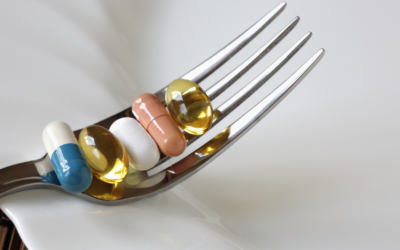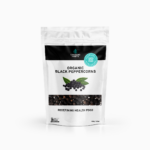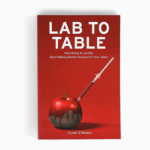Are we, or rather, are YOU, a pill popper? Over the Easter break there were several news stories about the fact that we are a nation of pill poppers. The Weekend Australian magazine front story was on the deception of medication. So I thought this month it would be good to talk about one type of medication in particular that in my opinion is making more people sick rather then better.
Lets first look at the statistics regarding how many pills we consume as a nation. 40,000 pills are swallowed by the Australian population every day, which equates to 14,600 million tablets a year are swallowed by 22 million people per annum. So in a lifetime the average Australian swallows 46,000 tablets. Our drug habit costs us $14.2 billion a year and of that the government pays out $8 billion. Considering in our household we don’t even have panadol, and my children and I have never taken any medications I find these figures quite frightening. What it means is that we rely on pills rather then lifestyle changes.

Of the ten most prescribed drugs, 6 are for heart disease (cholesterol and blood pressure). Which makes me question; if these drugs are working why is heart disease our biggest killer?????? (Similar statistics are for NZ the US and UK).
Approximately 19 million scripts are written out every year for cholesterol lowering drugs, so this month I want to talk to you about your cholesterol and next month we are going to do HRT and The Pill.
There are many myths out in the market place, and sometimes it is hard to discern what is fact from fiction. One thing that is fact is that the research has consistently shown that many lifestyle diseases such as heart disease, cancer, obesity and diabetes are directly caused by an engineered and manipulated food supply focused on profit instead of health. But what is more alarming is that most people don’t even know they’re consuming these technology foods. Health is no longer normal; sickness obesity and lack of energy is and this has to change!
To change the state of community health a whole new way of looking at health is important and education and knowledge will be the leading factor in turning peoples eating habits around. One myth that particular concerns me is that of cholesterol and heart disease, particularly in light of statements made by health officials that 50% of the American (and possibly Australian) population will be on a cholesterol lowering drug in the years to come. That is a frightening statistic especially when you take into account the rising death toll from some of the cholesterol lowering drugs as well as the increase in life threatening side effects.
Cholesterol lowering drugs are taken to lower the level of bad cholesterol, in order to preserve and increase the life span of the patient. Yet by taking these medications, it may lower the cholesterol but does it increase life span, prevent heart disease and enable the patient to have a better quality of life.
First let’s look at the side effects of several of the cholesterol lowering drugs. One drug causes muscle inflammation where the patient experiences soreness and tenderness in their muscles, which eventually leads to a breakdown in the muscle, causing an increase in proteins and toxins in the blood, putting a load of the kidney, which leads to kidney failure and death. There is also evidence that one class of drugs depresses immunity by decreasing the activity of helper T cells.
Not only do the drugs have a side effect but unnaturally lowering cholesterol also has it’s side effects; there is a an increased risk of mood disorders, depression, stroke and violence as well as an effect on attention and reaction speed. There is also evidence that lowered cholesterol may increase chances of cancer.
But in order to be convinced that 50% of the American population does not need these cholesterol lowering drugs it is important to understand the cholesterol level myth.
Let’s first dispel the cholesterol level myth. Dr William Kannel, director of the long-term US Framingham study on heart disease, found ‘no discernible association between the amount of cholesterol in the diet and the level of cholesterol in the blood, regardless of how much or how little animal fat in the diet’. That is not to say that you should go overboard with eating saturated animal fat – remember, everything in moderation – but what it does tell us is that there is no need to be paranoid about consuming these fats.
There is also some discrepancy as to whether cholesterol levels are a good indication of heart disease. At maximum only 40 percent of people with blocked arteries and heart disease have elevated blood cholesterol levels. How do we explain the other 60 per cent that do not have elevated cholesterol levels?
So why do some people have high cholesterol while others don’t? One in 500 people have familial hypercholesterolemia, a genetic defect that occurs and does not seem to respond to diet, but what about the other 499. I really think it is an individual thing. Levels will rise and fall many times in a person’s lifetime. When you are stressed, your adrenal glands and liver increase the level of cholesterol in your blood – and for a very good reason. Studies have shown that a low level of cholesterol impairs the body’s ability to cope with physical and emotional stress. Therefore a higher level is helping the body cope with stress. This occurs because cholesterol is the building block for the stress hormone cortisol. In other words it is an old fashioned mechanism the body needs for survival – to enable it to fight or flee.
When you have your blood tested for cholesterol levels, you usually get a reading for HDL and LDL, also called respectively good cholesterol and bad cholesterol. Whoever heard of such nonsense! As if something evolved in the body for specific reason could be bad, just because research has deemed it bad does not necessarily make it bad. LDL’s serve a particular purpose in the body to take cholesterol formed in the liver to the surrounding tissues for the manufacture of vital hormones. Without it we would have no sexuality and no coping skills. The body is a remarkable fine working machine and when given the right foods (nature foods) and building blocks, it will run exactly as it should. We have just forgotten how innate this mechanism is.
Apart from the cholesterol you consume, your liver and adrenal glands produce cholesterol. It helps in the manufacture of vital hormones including oestrogen (female sex hormone), cortisone (stress hormone) and testosterone (male sex hormone). Every cell in our body needs cholesterol. It’s an important substance for our health. It promotes the health of the intestinal wall and is a protection against colon cancer. Cholesterol is an antioxidant. Our bodies produce a large percentage of all the cholesterol we need, and our liver regulates the levels of cholesterol in our bloodstream. But maintaining the correct balance requires a regular supply of essential vitamins and minerals, which is why we need a good diet.
On top of that, a diet high in bad fats (technology fats) and low in fibre and fresh foods causes the level of cholesterol and other fats to change from what is normal and required for good health. Therefore you can conclude that it’s not so much foods with a high cholesterol content that cause problems, but foods high in trans fatty acids found in hydrogenated and partially hydrogenated oils, and margarine. In other words; technology fats. And we certainly eat too many of those foods in this modern society. Now you may be thinking I don’t eat technology fats, but if you consume manufactured foods, such as breads, breakfast bars, movie popcorn, fried noodles, donuts, crackers, some cereals, cake mixes etc, then you will be consuming these technology fats.
Eggs have been a bit of a scapegoat with regards to the cholesterol myth, but they actually have a good effect on blood cholesterol levels. Eggs are like nuts – they’re nature’s vitamin pills. The protein in eggs is 90 per cent available to the body, compared to 65 percent for the protein in meats. And importantly, eggs contain essential nutrients, which actually help your liver to regulate blood cholesterol levels. They also contain a unique natural substance called lecithin, which acts as a powerful fat dissolving agent to protect the body against fat building up in the arteries. Lecithin converts cholesterol into small particles so that it can be easily utilized by your body. But remember it is important to eat good eggs, from chemical-free farms; certified organic, free range cannot be surpassed.
If cholesterol is a problem to you and you do not have familial hypercholesterolemia, then it must be noted here that if you rely on drugs to treat any of your health problems, you must accept the fact that many, if not most, of the physiological effects of the medication are unknown. It is a case of user beware.
More importantly diet has a dramatic effect on the health of the body, but knowing what diet and what foods to eat is the tricky part. Know that technology based foods have only been around for the past 30 years, where as nature based foods have stood the test of thousands of years. Use food as your medicine, but use nature based foods.
Dr Carole Hungerford a medical doctor practicing in Sydney says that if a person comes into her practice on 15 or more medications and she can’t get the prescriptions down to under 3 then she is not doing her job. So if you want to change your lifestyle and get off your medications then find a medical doctor who is willing to help, look up www.acnem.org for a doctor near you and follow the changing habits programs.
Happy Changing Habits
Cyndi O’Meara







0 Comments